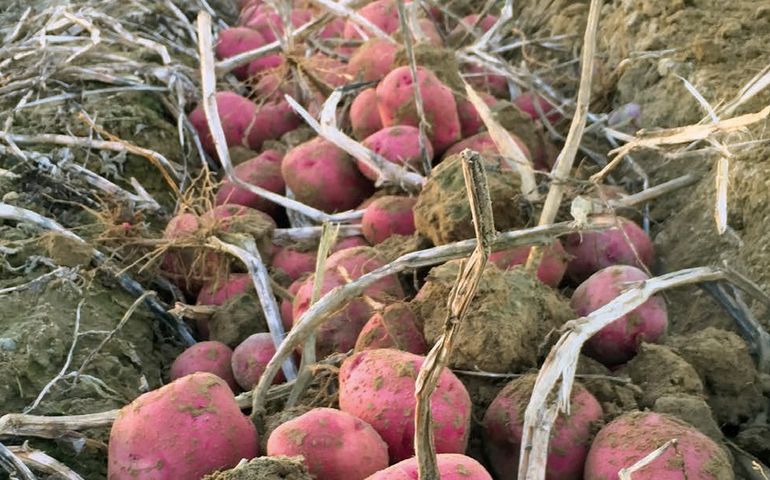Mills vetoes bill that would have allowed farm workers to unionize
 File Photo
Lawmakers led by U.S. Sens. Angus King, I-Maine, and James Risch, R-Idaho, are calling on the Biden administration to resolve a trade dispute blocking fresh potato exports to Mexico.
File Photo
Lawmakers led by U.S. Sens. Angus King, I-Maine, and James Risch, R-Idaho, are calling on the Biden administration to resolve a trade dispute blocking fresh potato exports to Mexico.
Gov. Janet Mills vetoed a bill that would have allowed Maine farm workers to unionize, saying the measure could discourage the growth of farms in the state and add costs and complications for farmers.
The bill, LD 151, introduced by state Rep. Thom Harnett, D-Gardiner, would have allowed workers at Maine farms that employ five or more people to collectively bargain wages, benefits and hours. It passed by a one-vote margin in the senate and by a 73-58 vote in the house last year.
"Maine's farms are confronting a series of significant challenges, some of which are longstanding in nature while others have been worsened by the pandemic, but all of which present dire threats to the livelihoods of our farmers," Mills said in vetoing the measure. “While this bill is well-intended, I fear its unintended consequence would discourage the growth of farms in Maine.”
Harnett had said farm workers, who are generally not covered by state minimum wage and overtime laws, deserved basic labor protection.
"The right to organize is fundamental to improving labor conditions, and farm workers need that basic right in order to negotiate with their employers," Harnett said last year. "Farm workers, who travel thousands of miles from their homes to feed us, deserve nothing less than the legal protections afforded to all other working people."
The Maine Potato Board, the Maine Farm Bureau and the Maine Vegetable and Small Fruit Growers Association all opposed the bill.
“It ultimately would not help growers and those working in Maine agriculture. Maine farmers and agriculture workers were overwhelmingly against this legislation, and we thank Gov. Mills for her support of our position, and for protecting Maine agriculture and its workforce,” the Maine Potato Board said in a statement.
“Agriculture is a unique industry, relying on nature to provide us with the right opportunities to plant, care for and harvest crops. We rely on and respect the hard working employees we have who make it possible to provide, in many cases year round, food to people in and outside of Maine. Legislation that would restrict the ability to plant, care for and harvest our crops would risk the livelihood of Maine farmers and those employees that rely on the jobs Maine farms provide,” the Maine Potato Board said.
The Maine AFL-CIO slammed the governor’s veto, saying farm workers deserved protection.
“Farmworkers provide the most essential service to our communities by growing, picking and processing the food we eat every day. They perform back breaking labor and are among the most exploited workers in our nation,” said Matt Schlobohm, executive director of the Maine AFL-CIO. “We are greatly dismayed that Gov. Mills vetoed legislation to grant farmworkers the fundamental human right to join together and form unions for fair treatment and a better life.”
Schlobohm added that the exclusion of farmworkers from basic labor protections was a result of a history of discriminatory policy, rooted in racism, that excluded workers of color from basic labor protections.
“This bill would have advanced racial justice and corrected a long standing injustice,” Schlobohm said in a statement.













0 Comments